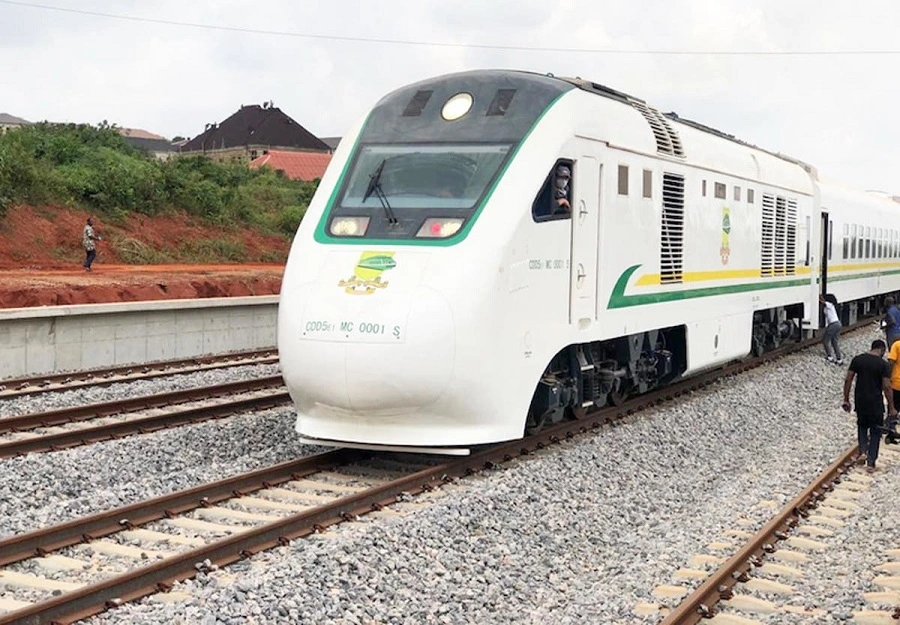Full List of Nigeria Customs Ranks and Monthly Salaries

The Nigeria Customs Service (NCS) has been around since 1891. Back then, it started under British rule with the primary goal of collecting inland revenue. Now, it’s a full-blown paramilitary organization under the Ministry of Finance, not just collecting duties but also fighting smuggling and protecting national borders.
Though the agency once operated under the Ministry of Internal Affairs, it was officially moved to the Ministry of Finance in 1992. Its headquarters is located on Abidjan Street, Wuse Zone 3, Abuja. Today, it plays a central role in regulating imports, enforcing trade laws, and guarding against economic sabotage.
Duties of Nigerian Customs Officers
Customs officers aren’t just posted at borders to scan luggage. Their job includes intercepting illegal shipments like drugs and arms, collecting tariffs and taxes, and preventing revenue loss. They also assist in policy enforcement and work hand-in-hand with other agencies to control the country’s economic gateways.
They inspect containers, process manifests, monitor how foreign exchange is used, and maintain statistics for government planning. On top of that, they conduct investigations and prosecute individuals or organizations that break trade laws.
Organizational Structure and Departments
The Customs Service is run by a Comptroller-General, who is supported by six Deputy Comptroller-Generals (DCGs). Each DCG heads one of these key departments:
- Finance, Administration & Technical Service
- Tariff & Trade
- Enforcement, Investigation & Inspection
- Strategic Research & Policy
- Human Resource Development
- Excise, Free Trade Zones (FTZ), & Industrial Incentives
Each department is broken down into divisions managed by Assistant Comptroller-Generals. Every division has units, and Comptrollers take charge of those.
Each of Nigeria’s four customs zones—Lagos (Zone A), Kaduna (Zone B), Port Harcourt (Zone C), and Bauchi (Zone D)—is overseen by an Assistant Comptroller-General. These zonal commands handle enforcement and administration across states under their jurisdiction.
Ranks in Nigeria Customs Service
The hierarchy in Customs mirrors that of other paramilitary bodies like Immigration and Civil Defence. The highest authority is the Comptroller-General, and it goes all the way down to Customs Assistants.
A detailed breakdown of ranks includes:
- Comptroller General (CGC)
- Deputy Comptroller General (DCG)
- Assistant Comptroller General (ACG)
- Comptroller
- Deputy Comptroller
- Assistant Comptroller
- Chief Superintendent of Customs
- Superintendent of Customs
- Deputy Superintendent of Customs
- Assistant Superintendent of Customs I
- Assistant Superintendent of Customs II
- Senior Inspector of Customs
- Assistant Inspector of Customs
- Customs Assistant
You can get a more detailed breakdown of Nigeria police ranks and symbols, which are organized similarly.
How the Pay Structure Works
Like other paramilitary groups in Nigeria, the NCS uses the Consolidated Paramilitary Salary Structure (CONPASS). This salary framework applies to everyone from entry-level recruits to senior officials, ensuring consistency and gradual growth in pay.
The structure divides officers into two categories: Inspectorate Cadre (levels 3–7) and Officer’s Cadre (starting from level 8). Recruits with secondary school qualifications fall under the Inspectorate Cadre, while those with higher education start from Officer’s Cadre and above.
There’s also the new wage reform that increased the minimum wage from ₦18,000 to ₦33,000. This affects customs officers too, pushing their income higher across all ranks.
Updated Salary Range by Rank
The income for Customs officers varies depending on position and education. Here’s the current estimated monthly range for each rank:
- Comptroller General – ₦2,870,000 to ₦2,500,000
- Deputy Comptroller General – ₦2,570,000 to ₦2,480,000
- Assistant Comptroller General – ₦2,470,000 to ₦2,280,000
- Comptrollers – ₦2,070,000 to ₦1,880,000
- Deputy Comptrollers – ₦1,770,000 to ₦1,580,000
- Assistant Comptrollers – ₦1,570,000 to ₦1,480,000
- Chief Superintendent of Customs – ₦1,370,000 to ₦1,280,000
- Deputy Superintendent of Customs – ₦1,270,000 to ₦1,180,000
- Assistant Superintendent of Customs I & II – ₦1,070,000 to ₦980,000
- Inspector of Customs – ₦970,000 to ₦880,000
- Assistant Inspector of Customs – ₦870,000 to ₦780,000
- Customs Assistant – ₦770,000 to ₦680,000
The lowest position—Customs Assistant—earns just under ₦800,000 monthly. Meanwhile, the highest-ranked official can take home close to ₦3 million each month.
Annual Salary Breakdown
When translated to yearly income, the figures look like this:
- Customs Assistant – ₦298,506 to ₦330,321
- Assistant Inspector of Customs – ₦357,358 to ₦411,484
- Inspector of Customs – ₦483,014 to ₦567,065
- Assistant Superintendent II – ₦888,956 to ₦988,991
- Assistant Superintendent I – ₦1,012,562 to ₦1,143,539
- Deputy Superintendent – ₦1,094,027 to ₦1,252,038
- Chief Superintendent – ₦1,158,172 to ₦1,325,234
- Assistant Comptroller – ₦1,225,584 to ₦1,405,449
- Deputy Comptroller – ₦1,619,447 to ₦1,825,589
- Comptroller – ₦1,759,829 to ₦1,966,281
- Assistant Comptroller-General – ₦2,272,288 to ₦2,464,560
Education plays a role too. For instance, HND holders might start lower than university graduates, though both may eventually reach senior ranks with experience.
Benefits and Allowances in Customs
Beyond basic salary, Customs officers are eligible for a range of allowances. These depend on rank, duty post, and the nature of the assignment. Not every officer receives every allowance, but most benefit from at least a few.
Officers who aren’t housed by the government receive a rent allowance. Others working in tough or sensitive environments might get hazard or hardiness bonuses.
Some common allowances include:
- Transport allowance
- Meal subsidy
- Hazard bonus
- Utility and house maintenance
- Uniform upkeep
- Furniture allowance
- Torchlight allowance
- Detective and plain-clothes allowances
- Personal servant for certain officers
These extras can significantly boost an officer’s take-home pay, especially in upper ranks.
Management Structure
At the top of the command is Colonel Hameed Ibrahim Ali (Rtd), who serves as the Comptroller-General. He’s both the service’s top administrator and the vice-chair of its board, under the leadership of the Finance Minister.
He’s supported by key officials like:
- DCG ED Chikan – Finance & Technical Services
- DCG TM Isa – Tariff & Trade
- DCG RO Olubiyi – Strategic Research & Policy
- DCG EI Edorhe – Enforcement & Inspection
- DCG AT Babani – Human Resources
- DCG KC Ekekezia – Excise & Industrial Incentives
- DCG MB Boyi – Training and Doctrine
Each zone and directorate feeds reports upward, ensuring accountability and coordination.
Recruitment
Getting into the Nigeria Customs Service isn’t easy. Openings aren’t always publicly advertised, and the recruitment process tends to be discreet. While the process is officially free, competition is fierce, especially for officer-level roles.
A university degree opens the door to Officer Cadre roles. However, those with a diploma or secondary certificate can also build long careers under the Inspectorate Cadre.
Article updated 3 months ago ago. Content is written and modified by multiple authors.









